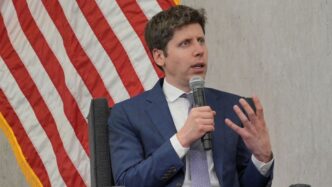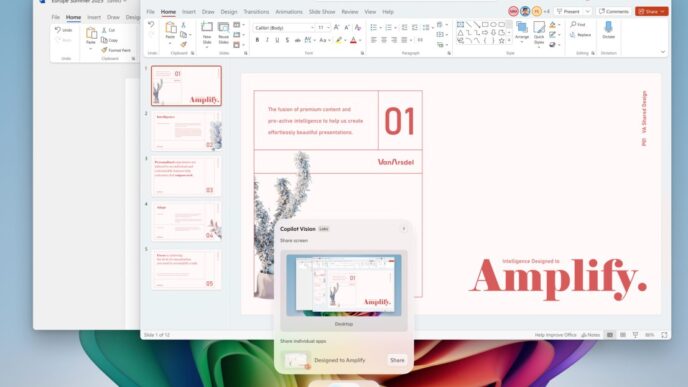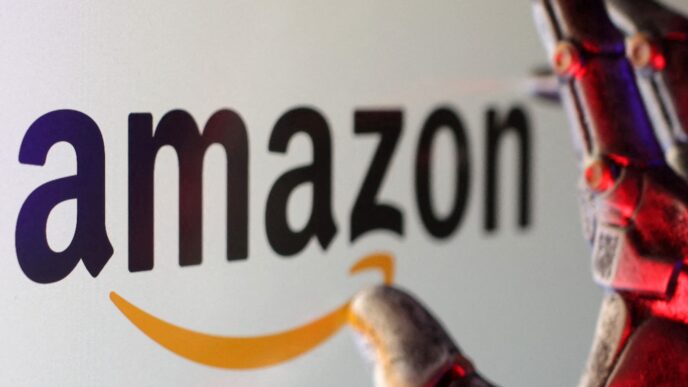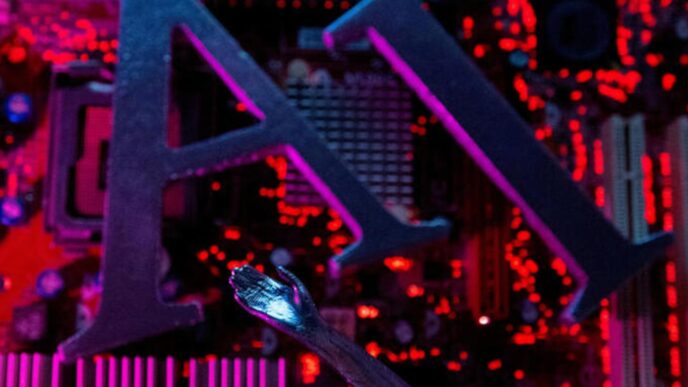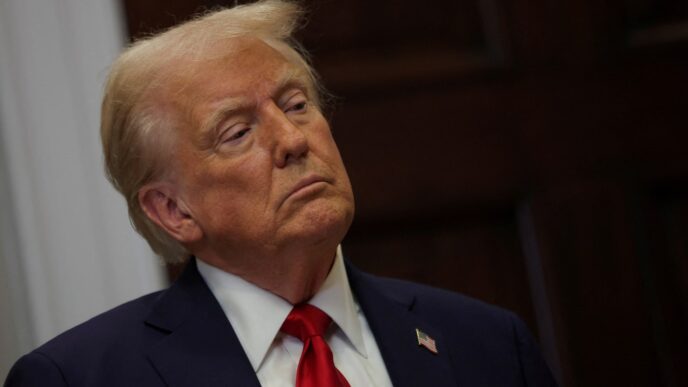OpenAI CEO Sam Altman warns AI is pushing us toward a “fraud crisis.” The culprit? AI-powered impersonations fooling financial institutions relying on voice prints for authentication. Altman slammed this as “a crazy thing to still be doing.”
Altman made the remarks during a Federal Reserve event with US financial heavyweights on Tuesday. His message: AI has crushed most current ID checks except passwords. The issue is urgent as the White House preps its new “AI Action Plan,” with OpenAI heavily involved.
OpenAI also announced plans for its first Washington, DC office early next year. Around 30 staff will work there, led by Chan Park and newly hired VP Joe Larson from defense tech firm Anduril. The office will host policymakers, tech previews, AI trainings, and economic impact research.
Despite warning of risks, OpenAI urges the US to avoid heavy AI regulation that could hinder competition with foreign firms. A recent Senate move struck from Trump’s agenda a provision blocking states from enforcing AI laws for a decade.
Altman isn’t the only one sounding alarms. The FBI flagged scams using AI voice and video cloning last year. Some parents have fallen for fake “child in trouble” calls. Just this month, someone using AI to mimic Senator Marco Rubio’s voice contacted foreign officials and politicians.
Altman on fraud risk:
“A thing that terrifies me is apparently there are still some financial institutions that will accept a voice print as authentication for you to move a lot of money or do something else — you say a challenge phrase, and they just do it.”
“I am very nervous that we have an impending, significant, impending fraud crisis.”
“Right now, it’s a voice call; soon it’s going be a video or FaceTime that’s indistinguishable from reality.”
Altman stressed OpenAI doesn’t build impersonation tools but highlighted the looming global challenge. He backs Tools for Humanity’s The Orb, a “proof of human” tool to combat AI identity fakes.
Altman also flagged his nightmare scenario: rogue AI superintelligence used by hostile actors to attack critical infrastructure or create bioweapons—paranoia that echoes Washington fears about Chinese AI advances.
He’s anxious about losing control over superintelligent AI and warns about giving it too much power. But unlike some peers, Altman is less worried about AI wiping out jobs.
“No one knows what happens next.”
Altman expects “entire classes of jobs will go away,” replaced by new work types. His bold prediction: in 100 years, people probably won’t have what we call “real jobs” now.
“You have everything you could possibly need. You have nothing to do,”
“So, you’re making up a job to play a silly status game and to fill your time and to feel useful to other people.”
Alongside Altman’s speech, OpenAI dropped a report from chief economist Ronnie Chatterji comparing ChatGPT to major tech disruptors like electricity and transistors. ChatGPT now counts 500 million users worldwide, with 20% of US users relying on it as a “personalized tutor” for learning and upskilling.
Chatterji plans to work with famed economists Jason Furman and Michael Strain on a longer study of AI’s workforce impact, based at OpenAI’s new DC office.
The race is on—not just for AI innovation but for control over AI’s massive social and economic fallout.
